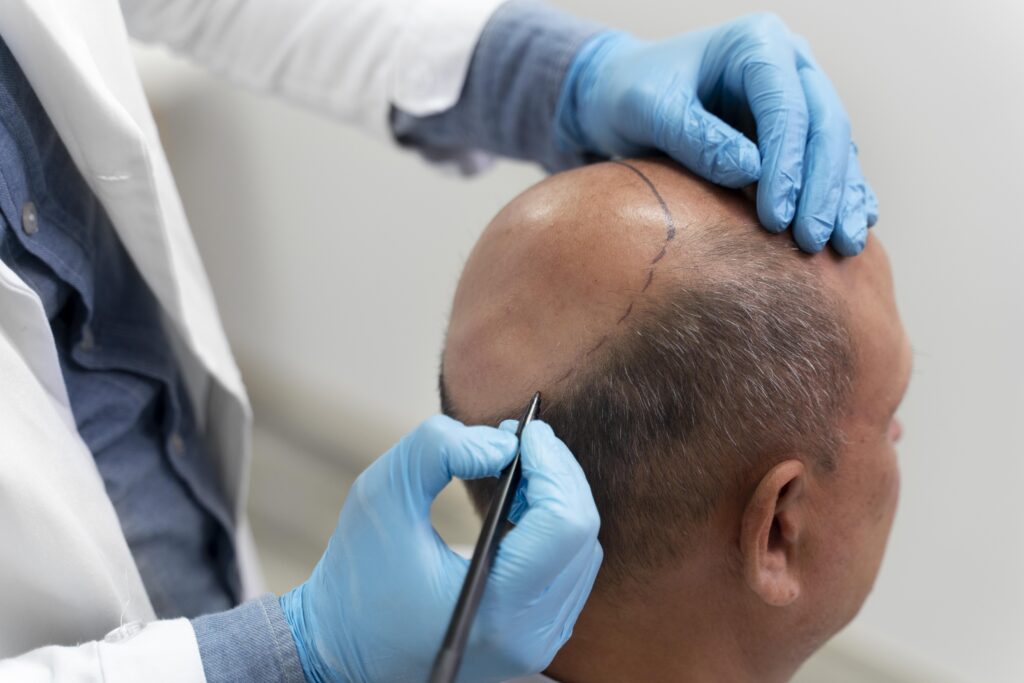
In a world where appearance plays a significant role in self-esteem and confidence, the impact of hair loss can be profound. Many individuals, both men and women, find themselves grappling with the emotional toll of thinning hair. However, with advancements in medical science, the journey from thinning to thriving has become increasingly accessible through the life-changing option of hair transplants.
Understanding the Emotional Struggle:
Hair loss often goes beyond physical changes; it deeply affects an individual’s mental and emotional well-being. Society’s standards of beauty can contribute to feelings of self-consciousness and even isolation for those experiencing hair loss. The emotional toll can lead to a decline in self-esteem, impacting personal relationships and professional opportunities.
The Rise of Hair Transplants:
The advent of hair transplant procedures has been a game-changer for those seeking a solution to their hair loss woes. Unlike ineffective topical treatments or wigs that merely mask the issue temporarily, hair transplants offer a more permanent and natural-looking solution.
The Procedure Unveiled:
Hair transplant procedures involve the extraction of healthy hair follicles from a donor site (typically the back of the head) and their transplantation to the thinning or balding areas. The process has evolved over the years, with advanced techniques such as Follicular Unit Transplantation (FUT) and Follicular Unit Extraction (FUE) providing more precise and aesthetically pleasing results.
Boosting Self-Esteem:
One of the most significant impacts of successful hair transplants is the boost in self-esteem and confidence. As individuals witness the transformation from thinning to thriving, they often experience a newfound sense of empowerment. The restoration of a fuller head of hair can contribute to improved body image and a more positive outlook on life.
Social and Professional Benefits:
Beyond the personal realm, the positive changes resulting from a hair transplant can extend to social and professional spheres. Studies have shown that individuals with a fuller head of hair are often perceived as more youthful, attractive, and successful. This can translate to increased confidence in social interactions and enhanced career opportunities.
Changing Perceptions:
Hair transplants have played a pivotal role in challenging societal beauty norms and promoting acceptance of diverse appearances. As more people openly share their experiences with hair restoration, the stigma associated with hair loss diminishes. This shift not only encourages those facing hair losses to seek help but also fosters a culture of inclusivity and acceptance.
Considerations and Precautions:
While the benefits of hair transplants are significant, it’s essential to approach the procedure with realistic expectations. Consultation with a qualified and experienced surgeon is crucial to understanding the potential outcomes, risks, and post-operative care. Additionally, candidates should consider factors such as overall health, age, and the extent of hair loss when deciding on the most suitable approach.
Conclusion:
The journey from thinning to thriving is a transformative experience made possible by the remarkable advancements in hair transplant procedures. Beyond the physical restoration of hair, these surgeries have a profound impact on individuals’ emotional well-being, self-esteem, and overall quality of life. As the field continues to evolve, the life-changing benefits of hair transplants will likely become even more accessible to those seeking a permanent solution to their hair loss struggles

